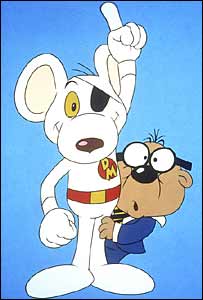Facebook cartoon meme
You may well have seen the campaign on Facebook to change your profile picture to a childhood cartoon character.
The changes were accompanied by a status update like this:
Change your facebook profile picture to a cartoon character from your childhood and invite your friends to do the same. Until Monday, December 6, there should be no human faces on facebook, but an invasion of memories! This is for a campaign against violence on children.
I changed mine (and received all sorts of friendly abuse questioning whether I was young enough to choose this particular character from my childhood!). About 30% of my Facebook friends changed their profile pictures too.
But lots of people have been sceptical as Mashable reported last week. And of course, this wasn’t official charity-supported campaign. Although some people inserted NSPCC into their updates, it was not an NSPCC initiative (although I suspect the charity wishes it had have been given the social infectiousness).
Many people got quite cross about it, some even Daily Mail* hysterical: “Apparently that picture change was a scam from those dirty bastards that would harm our children” but most were irritated by the claim that this would make any difference:”Can anyone explain how changing my profile pic to a cartoon character is going to stop child abuse?” posted one of my good friends.
Can anyone explain how changing my profile pic to a cartoon character is going to stop child abuse?
But that’s the theory of social advertising isn’t it? A small statement made by masses to promote a commonly-held view. I agree with Malcolm Gladwell’s assertion that the “weak ties [of social media] seldom lead to high-risk activism” but I don’t discount them entirely as a vehicle for change. However small a token, millions of people changed their pictures to make a personal statement. It was a relatively effortless act but that doesn’t denude its value. Granted it might have been better if everyone of us who changed our picture had made a donation to a relevant charity (and I’d still encourage you to do that) but more powerful is the badge that says “This is unacceptable to me.” This withdrawal of social acceptance is the basis for changed behaviour.
The vast majority of child abuse is perpetrated by the family of the victim or by a family friend. This cartoon campaign is likely to have reacheed deeper into those dark recesses of society than any mainstream, institutional, advertising campaign because it’s been personal and social. Maybe some of those who changed their picture might go on to support a child advocacy charity, maybe it simply prompted a bit of discussion but maybe, just maybe, it was the kernel of a shared belief that changing bahaviour starts in a small personal way. I hope so.
——————–
Update – NSPCC put this note on their official Facebook page:
“Thank you to everyone who has been supporting the NSPCC! As a result of the Facebook cartoon campaign, we have experienced a massive jump in traffic to our website and an unprecedented surge in donations. How did the campaign impact you? We would love to hear your story.”
——————–
*Please remember this is the UK’s Daily Mail with no greater evidence than “one Facebooker.” It’s just wild unsubstantiated rabble-rousing nonsense. I’m almost embarrassed about including it but it is precisely this kind of irresponsible reporting that prevents us from tackling these issues constructively.


4 Responses to “Facebook cartoon meme”